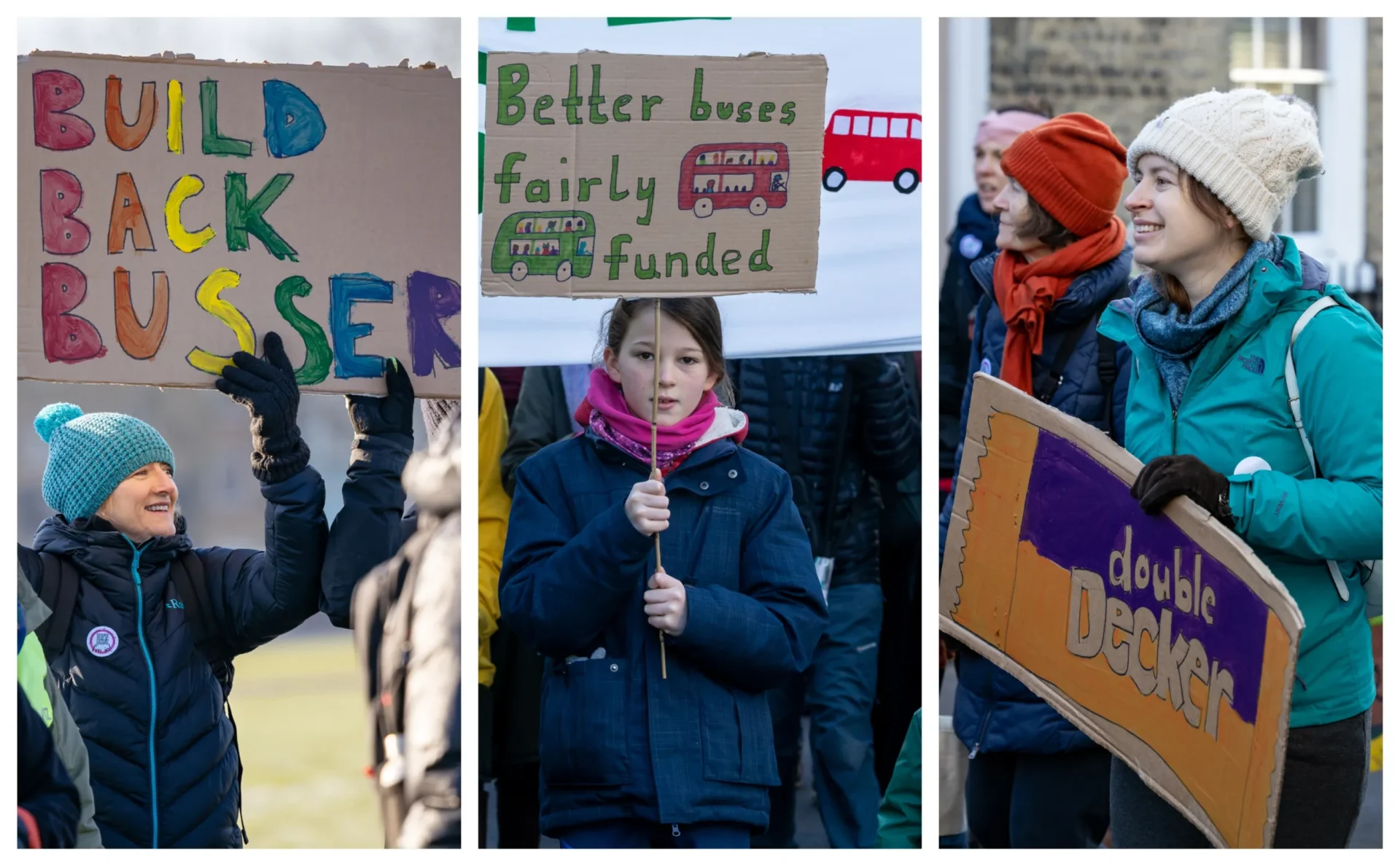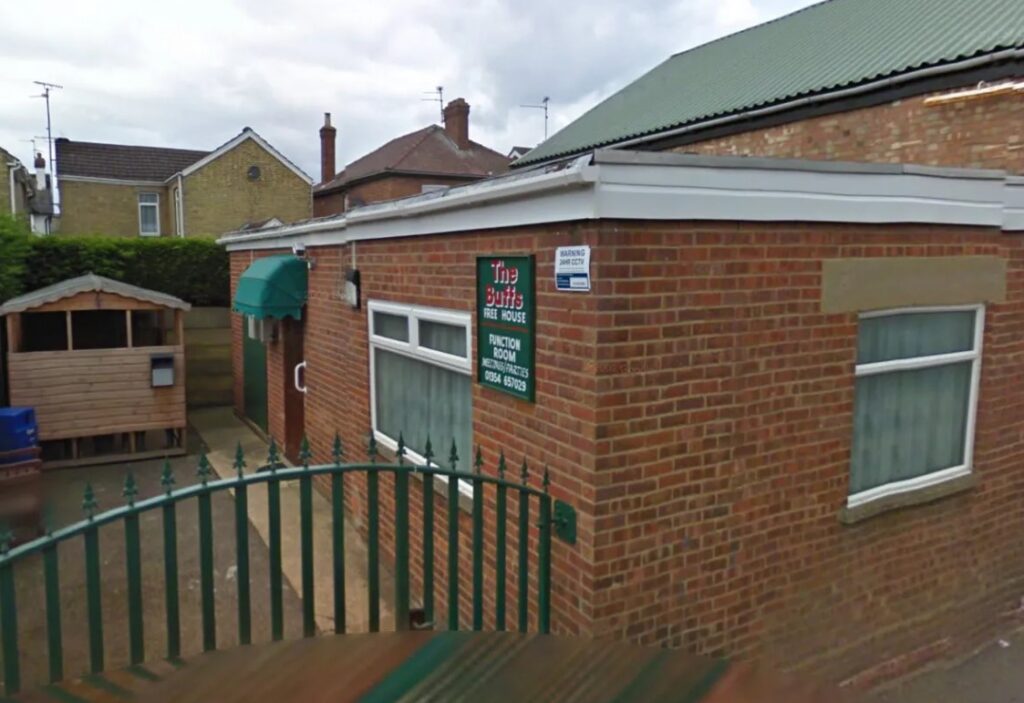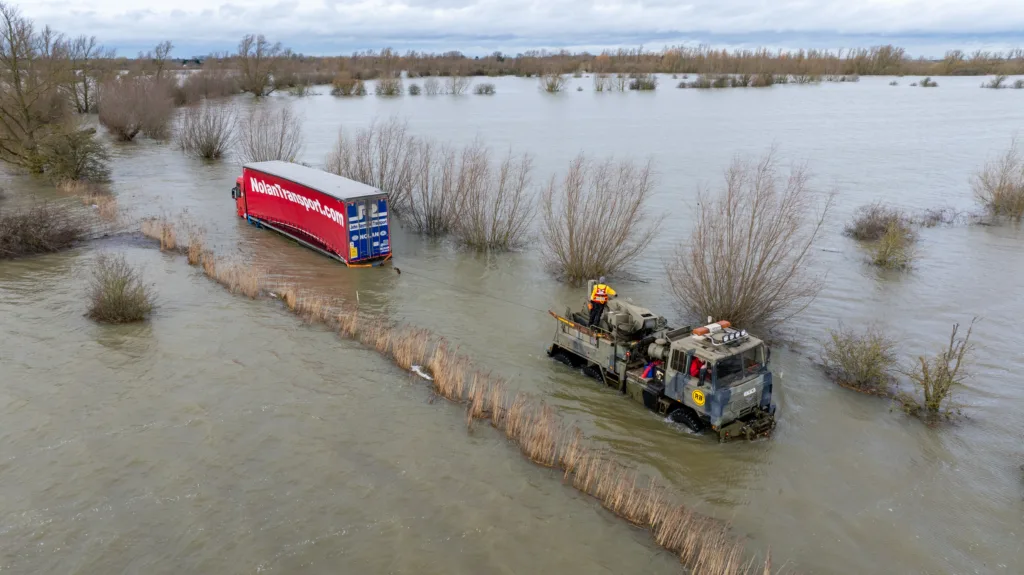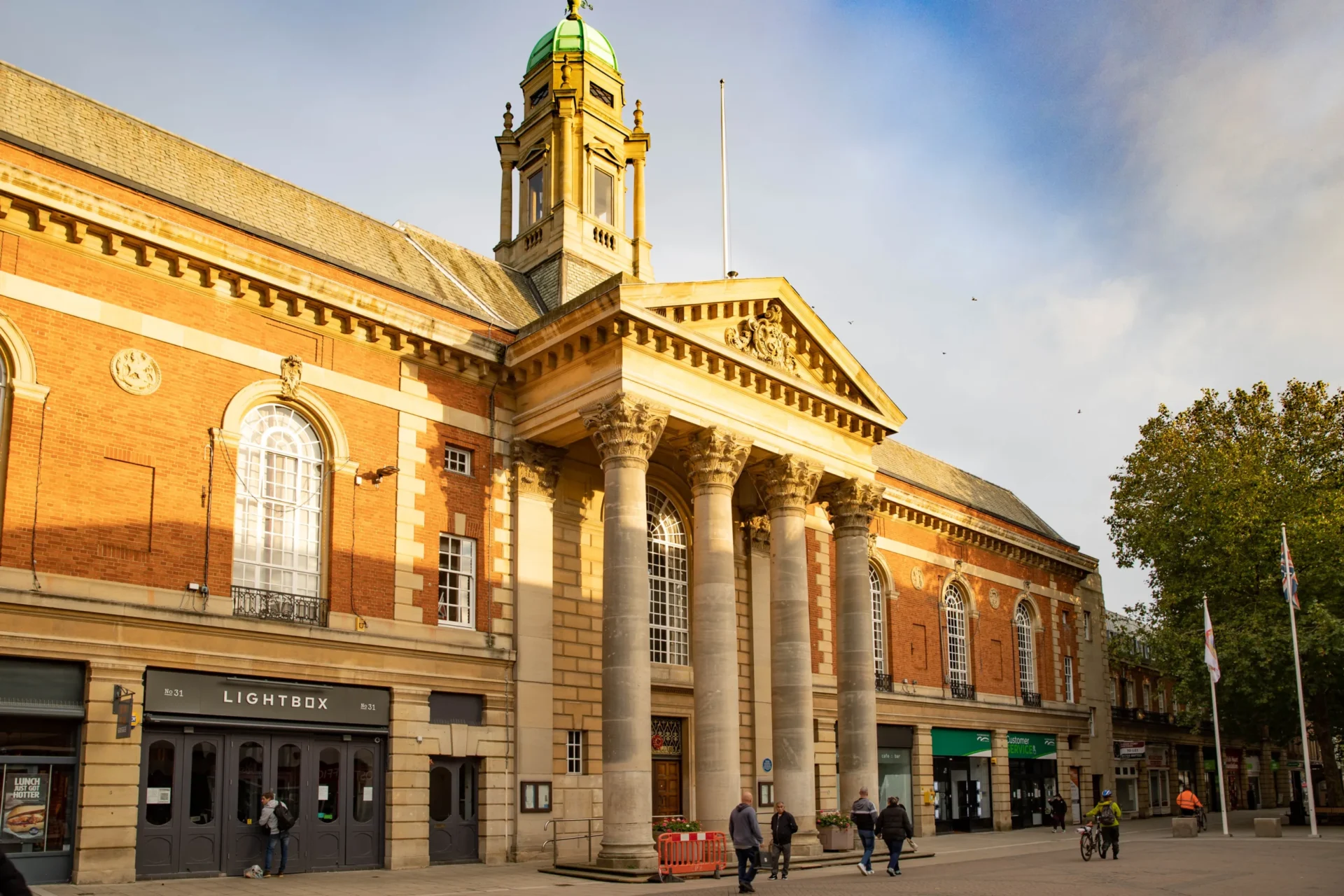A ‘walking bus’ was created in Cambridge to support improved public transport both for the city and for the county.
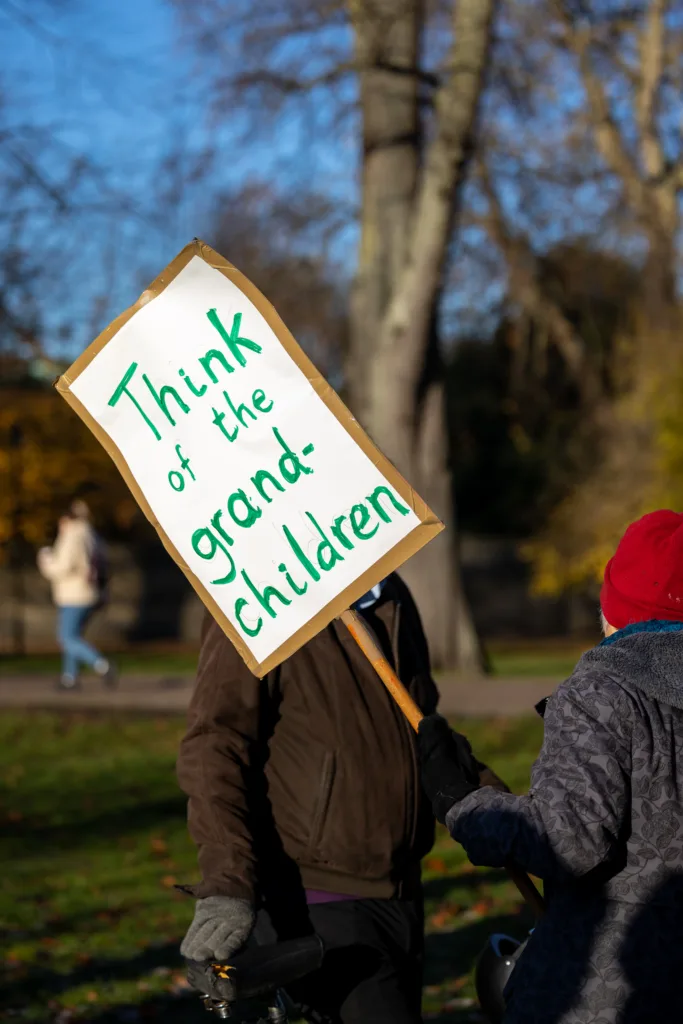
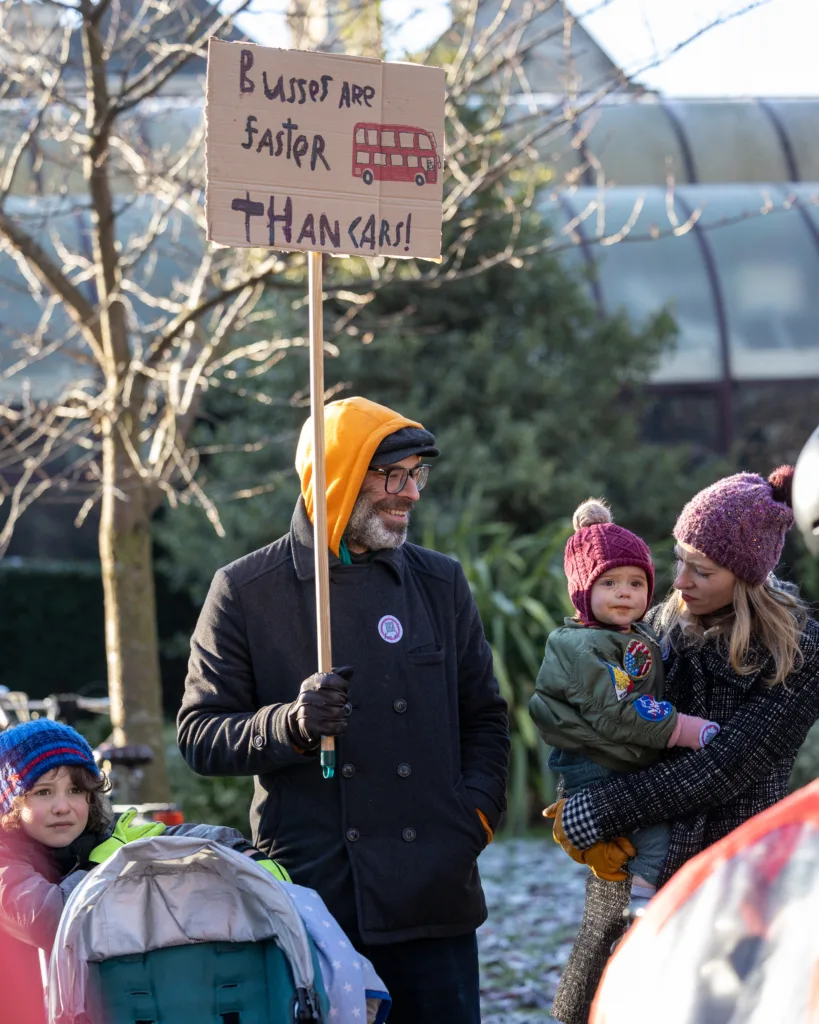


It was organised by the Cambridge Parents for the Sustainable Travel Zone and supported by the Cambridgeshire Sustainable Travel Alliance.
Organisers say among those attending were doctors, teachers, nurses, small business owners, children, councillors, parents, and grandparents.
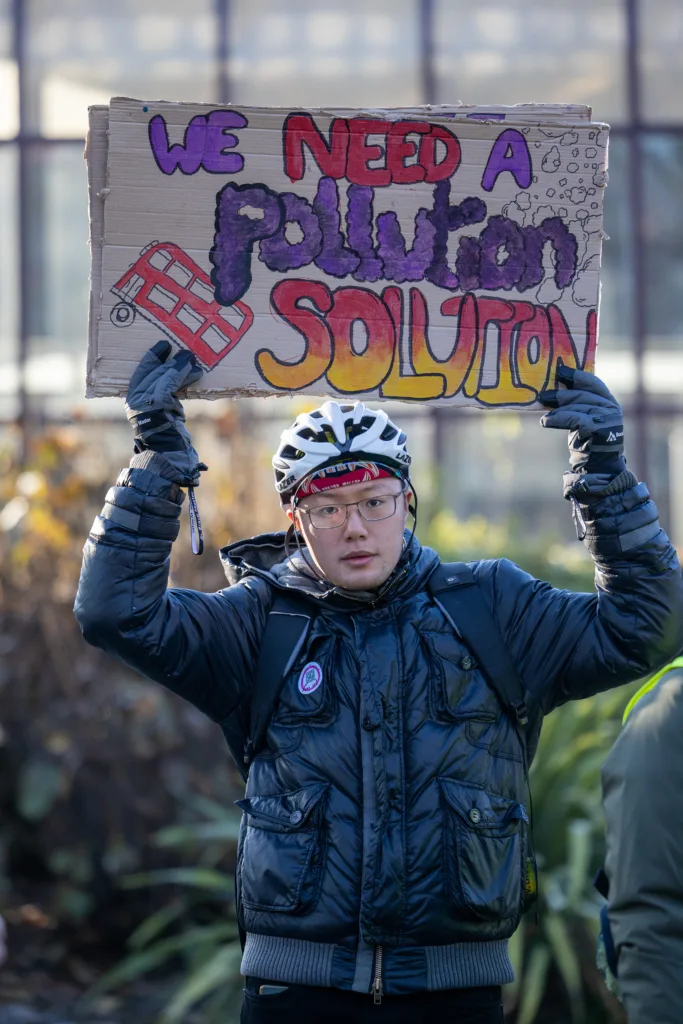
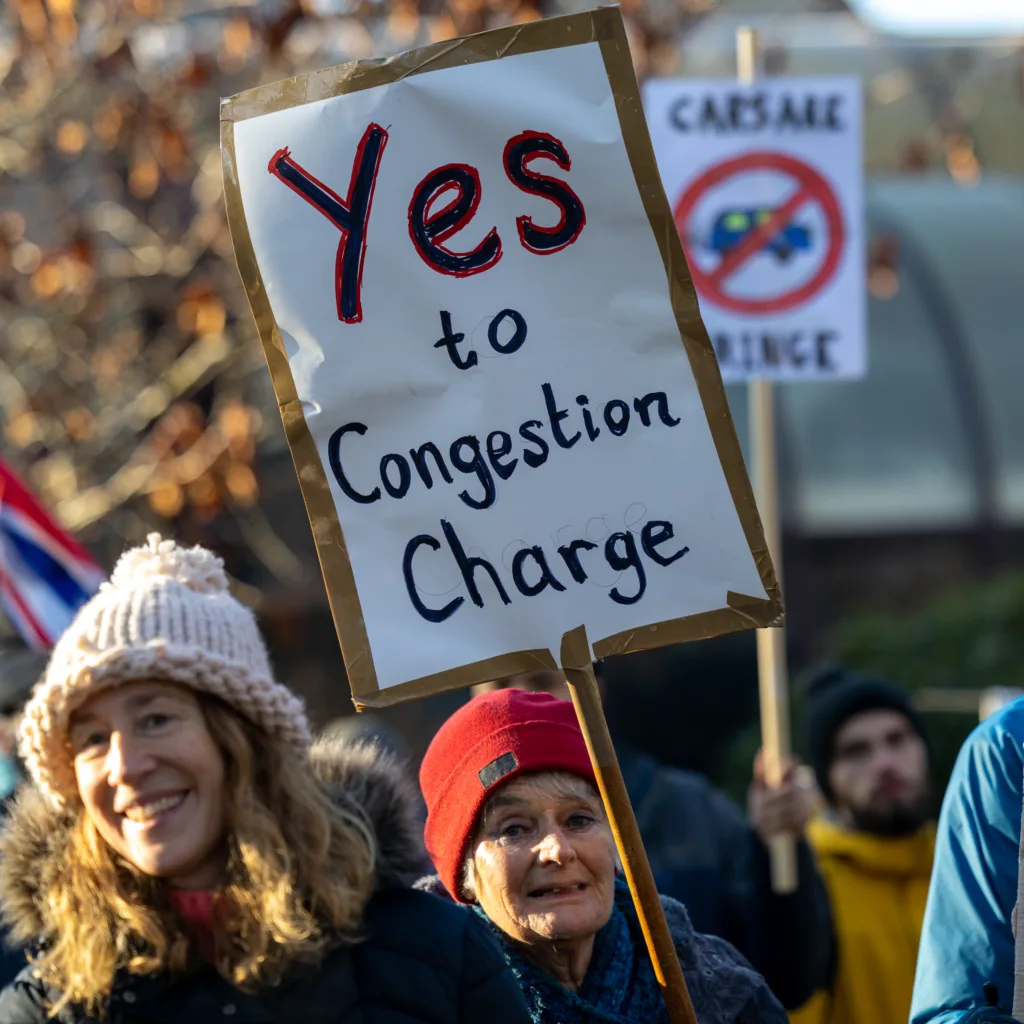
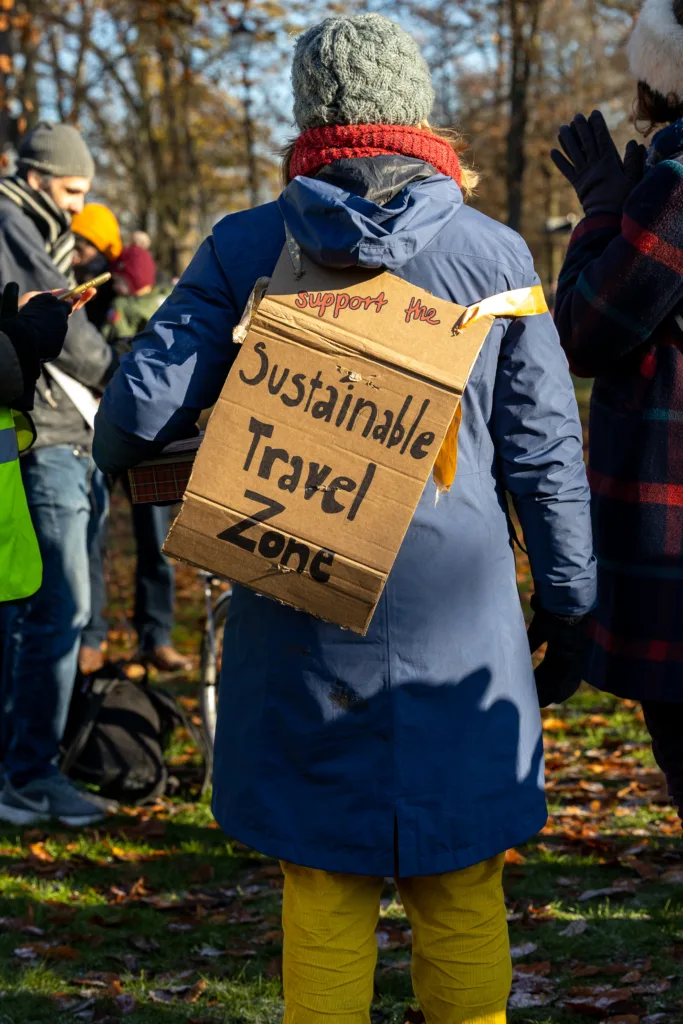 The The ‘bus’ began at Parker’s Piece and walked via Clarendon Street and New Square to Christs Pieces, finishing with speeches and cake next to Drummer Street bus station.
The The ‘bus’ began at Parker’s Piece and walked via Clarendon Street and New Square to Christs Pieces, finishing with speeches and cake next to Drummer Street bus station.
The walking bus was accompanied by music on a transport theme, including Wheels on the Bus, The Vengabus and (Are You Ready) Do the Bus Stop.
Alongside the music, those present chanted “Want Do We Want? Better Buses! When Do We Want Them? Now” and “What fights climate change? Busses fight climate change!”.
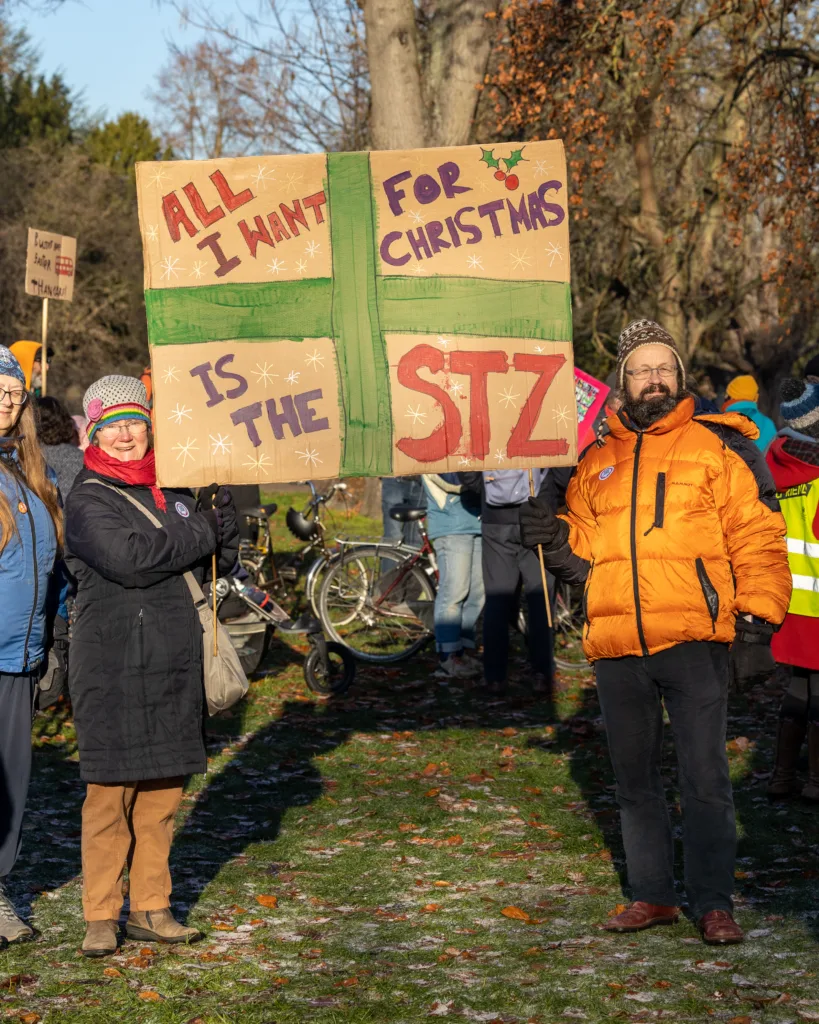
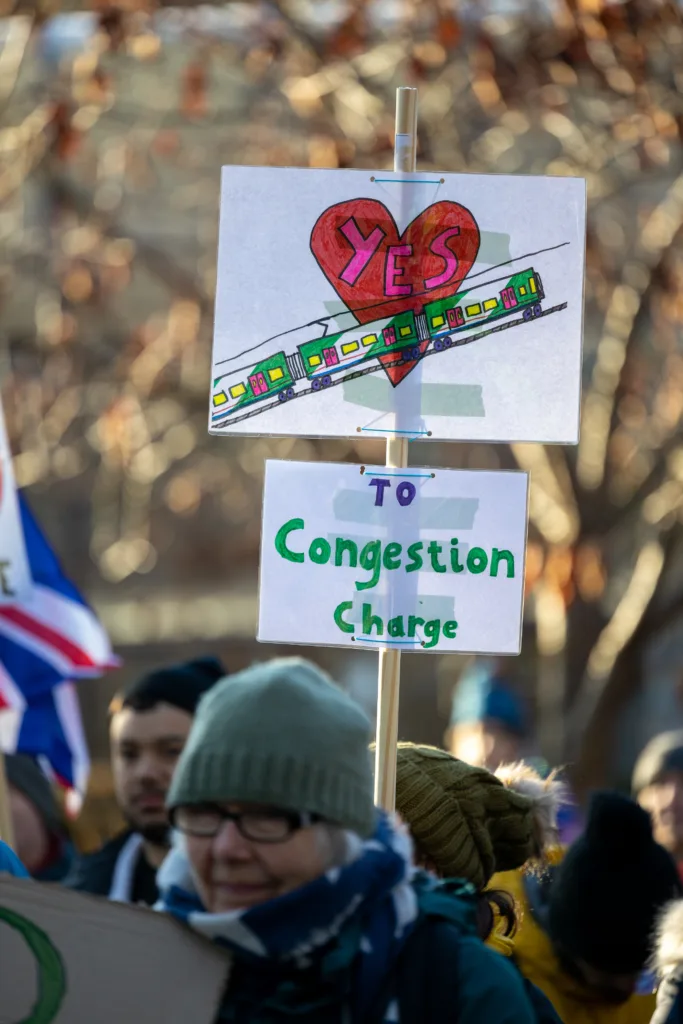
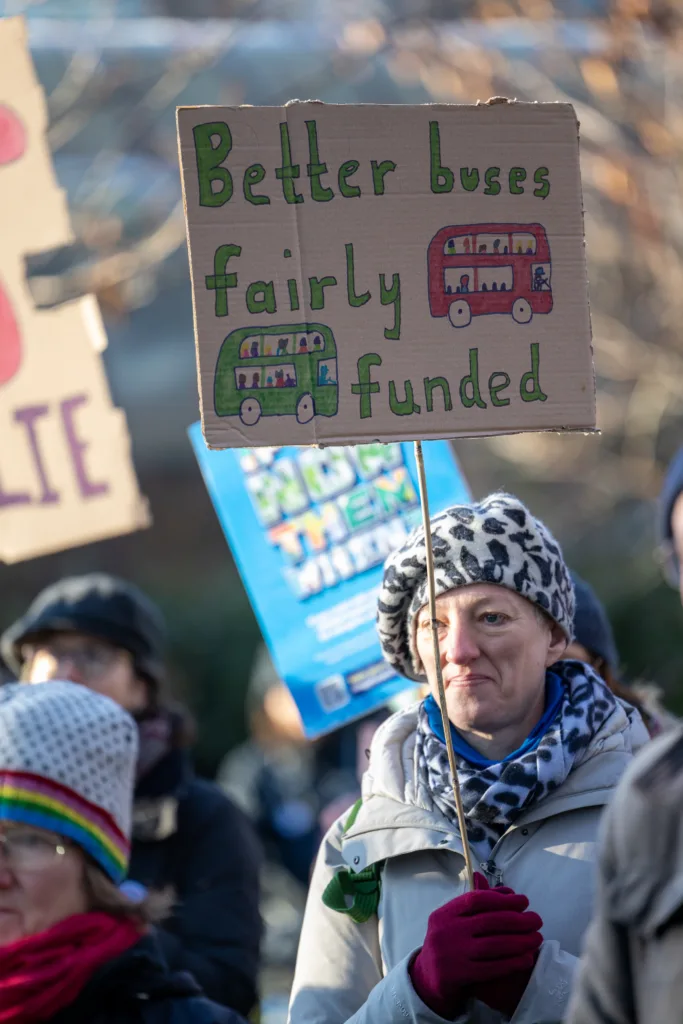


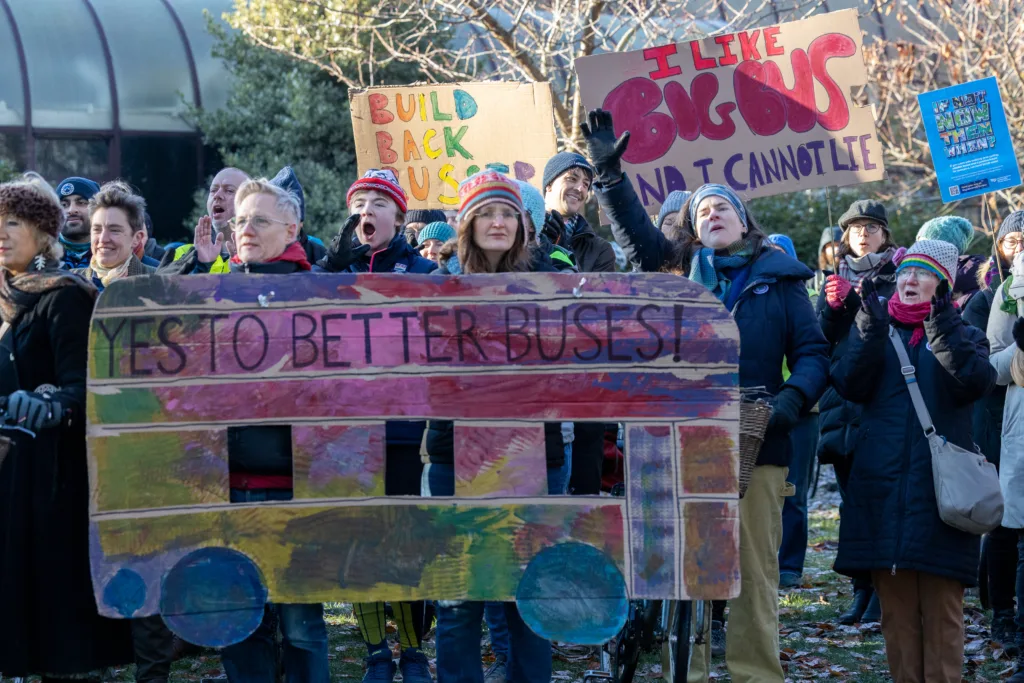

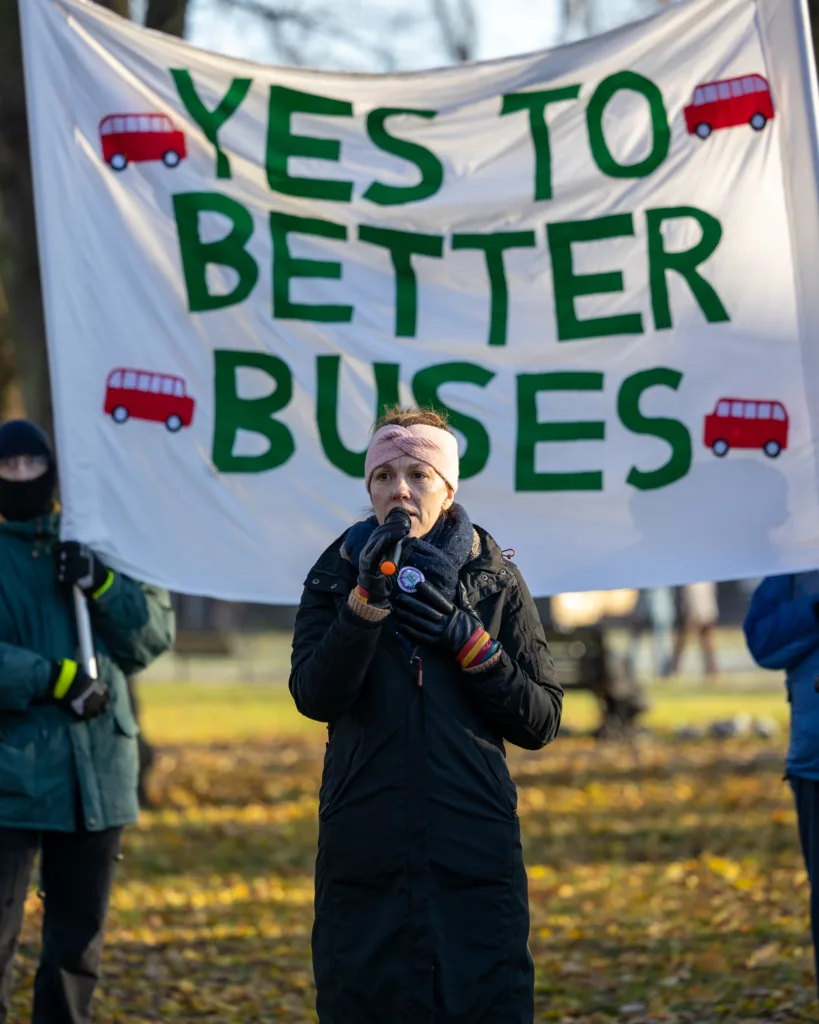
Placards on show ranged from straightforward “Yes to Better Busses” “Clean Air Now” to the more humorous “I like Big Bus and I cannot lie” and “Say Yes to the Bus!”.
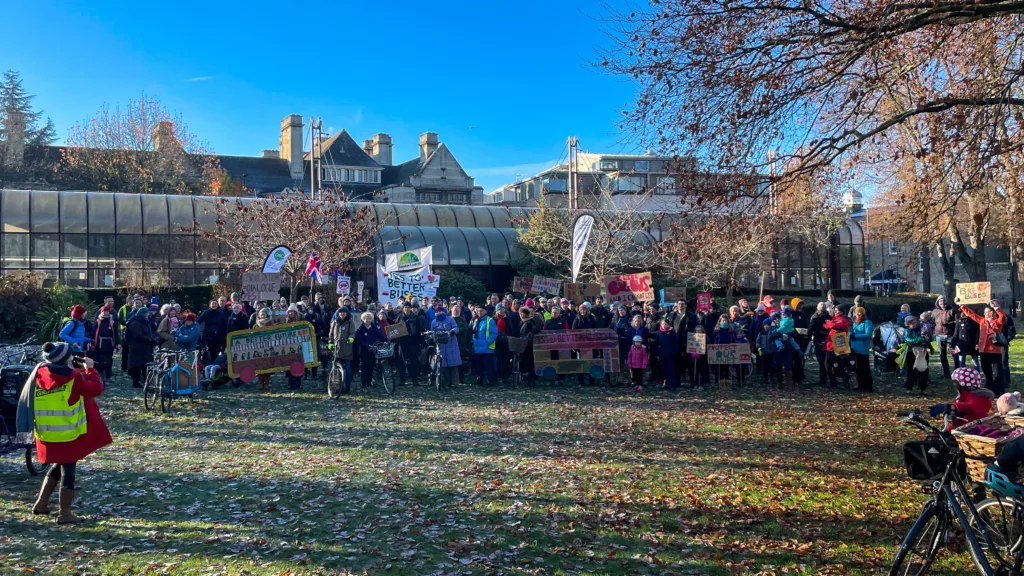

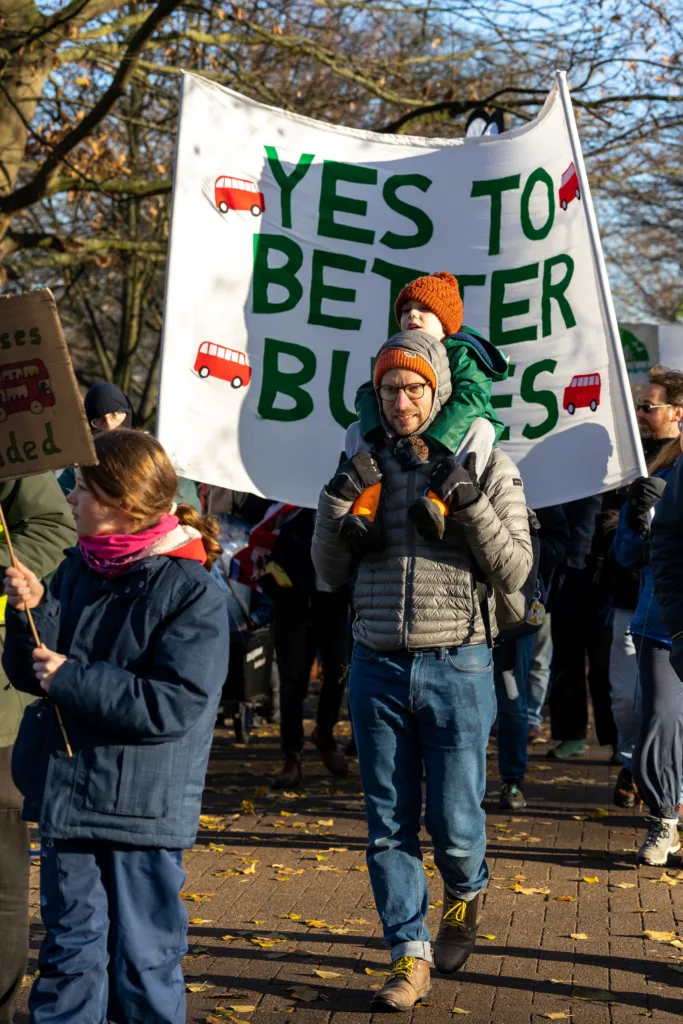
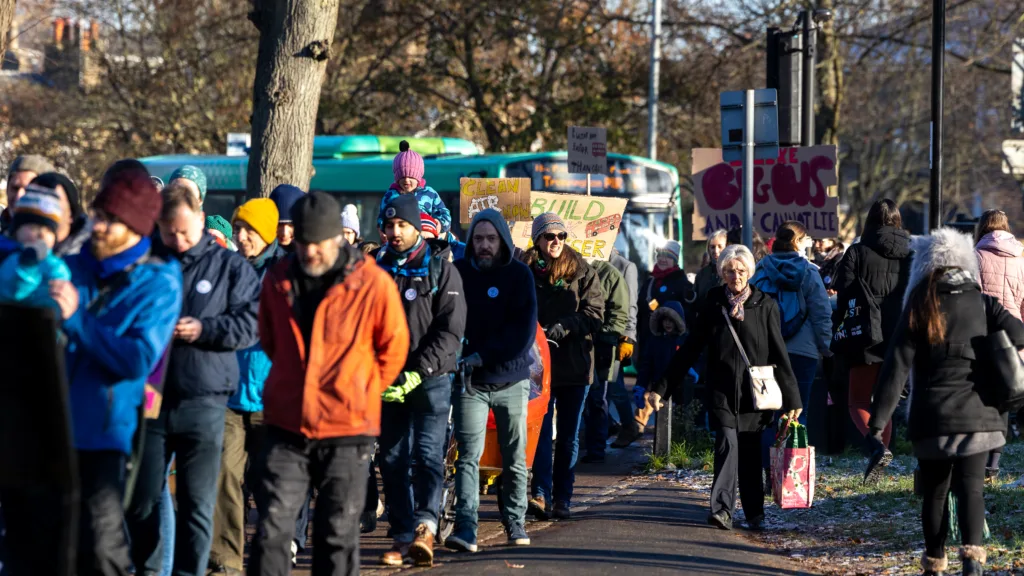
“Those attending had come from across the county to send a message to the Greater Cambridge Partnership that there is support for their proposals to radically improve public transport provision and active travel infrastructure in Cambridgeshire,” said a spokesperson for the organisers.
Elisabeth Whitebread from Cambridge Parents for the Sustainable Travel Zone, local school pupil Iris, from Melbourne Village College, and Dr Katherine Sharrocks from Addenbrooke’s Hospital all spoke to the crowds.
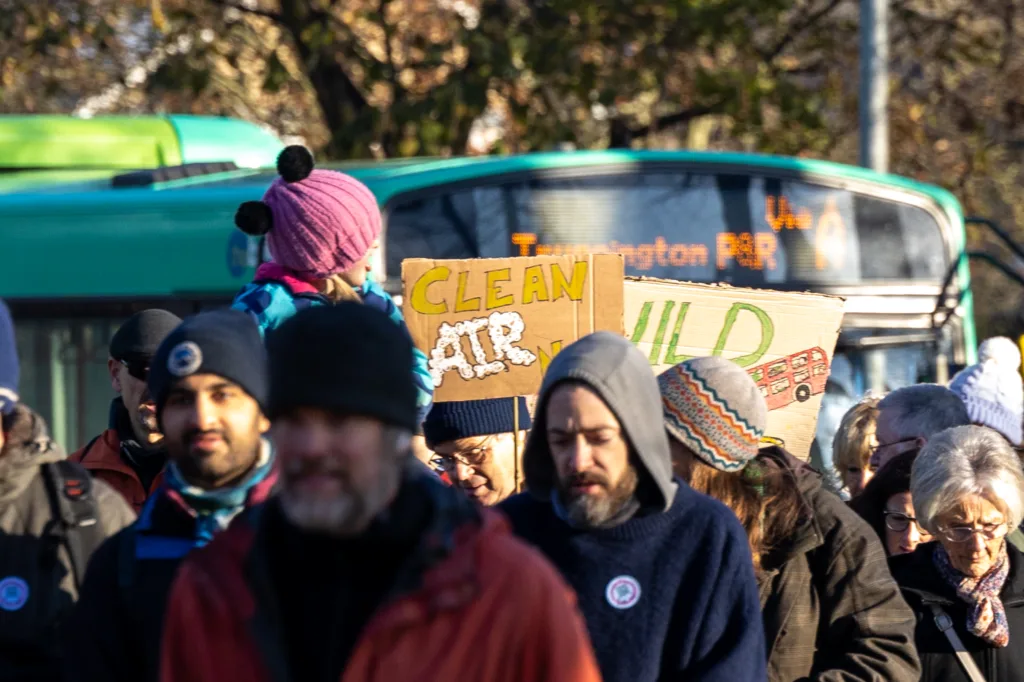
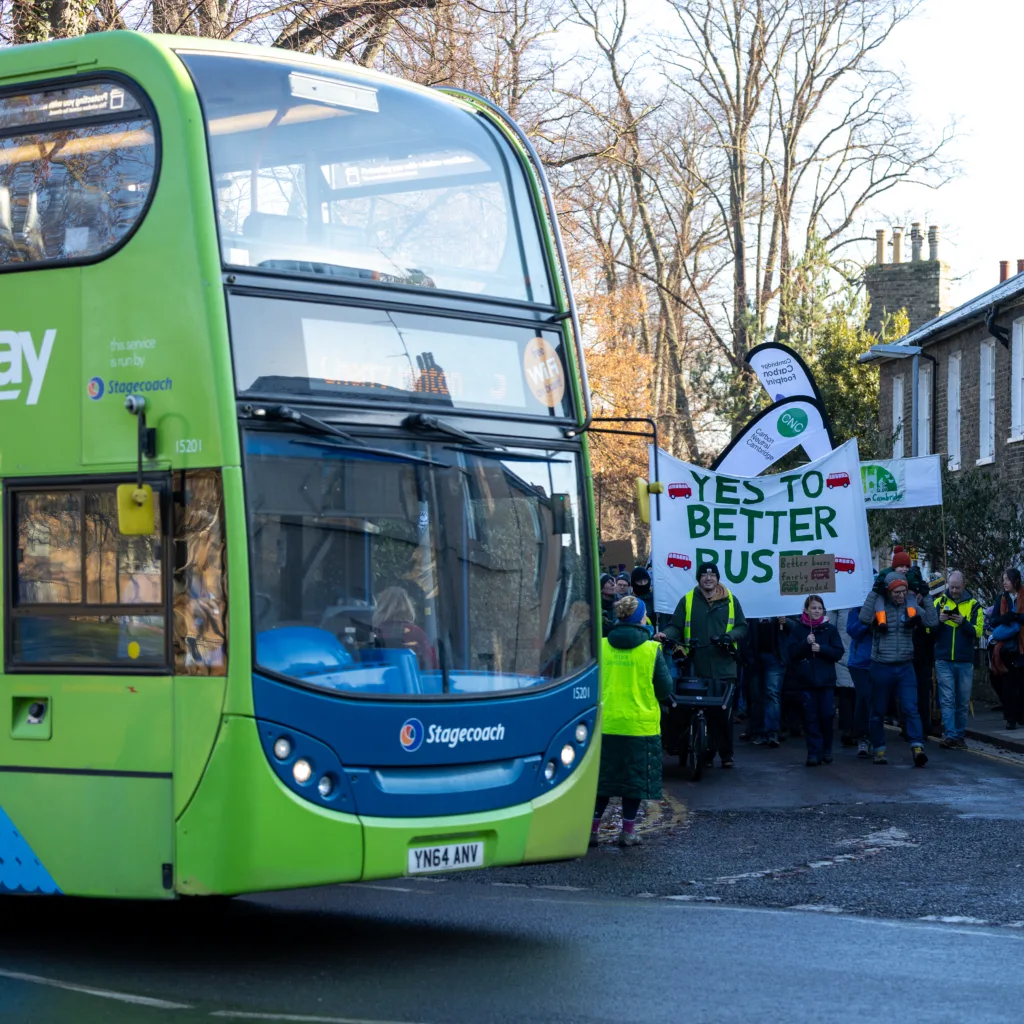
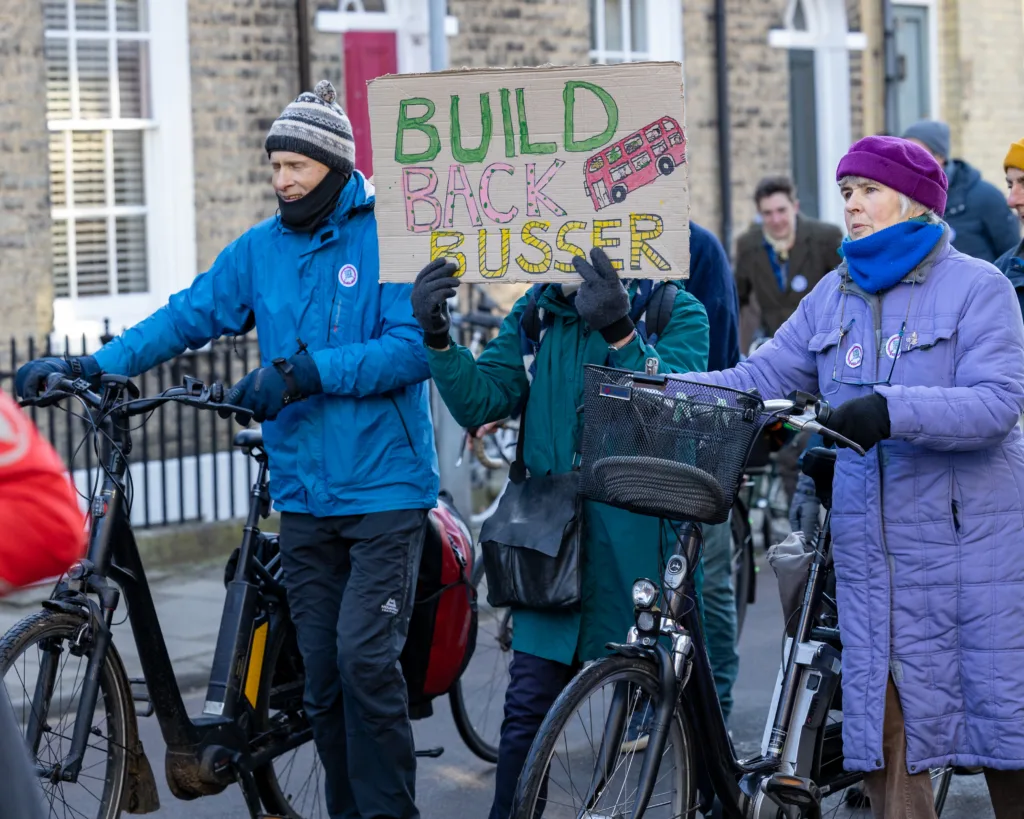
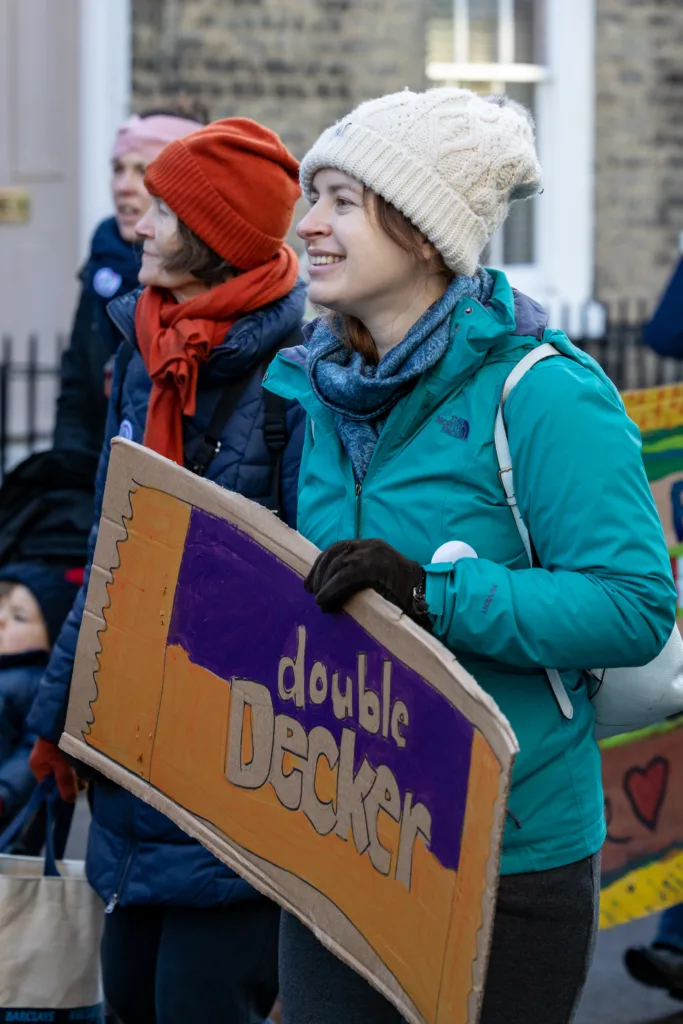

She said “We are here because we think this is really important. We think it is really important because of climate change, we think it is really important because of air pollution, we think it is really important because of equity.
“We think it is really important that Cambridge, which is an amazing city, has a transport system that is fit for the 21st century.
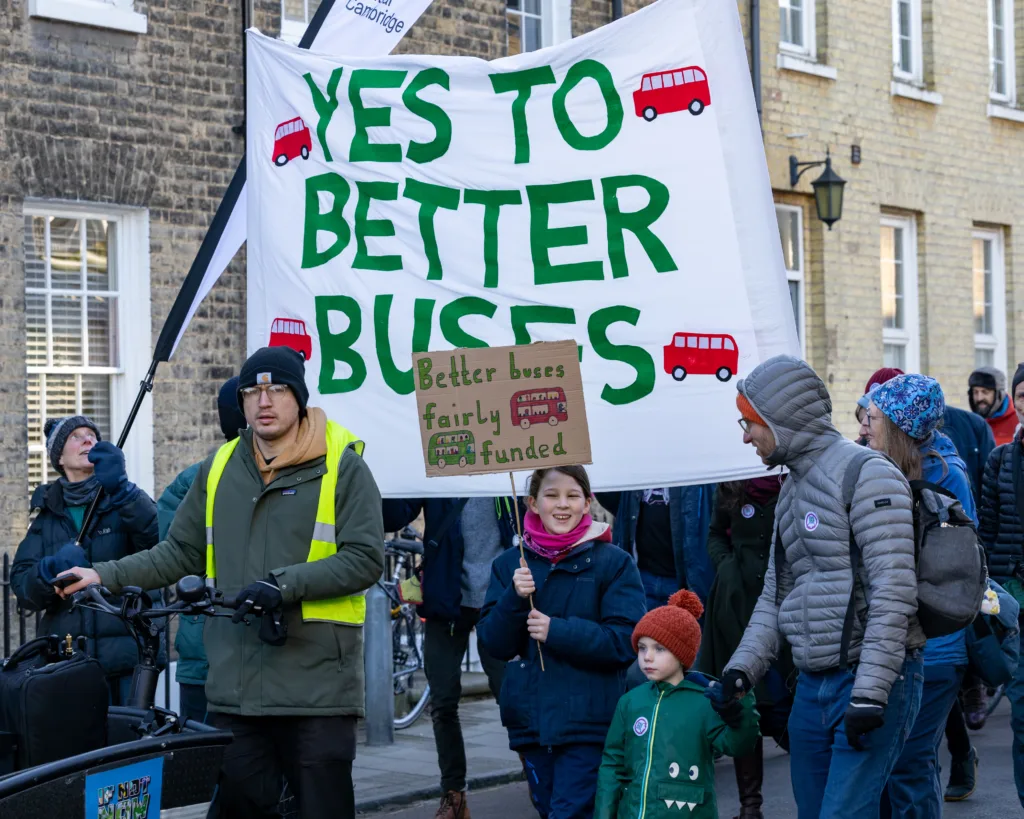
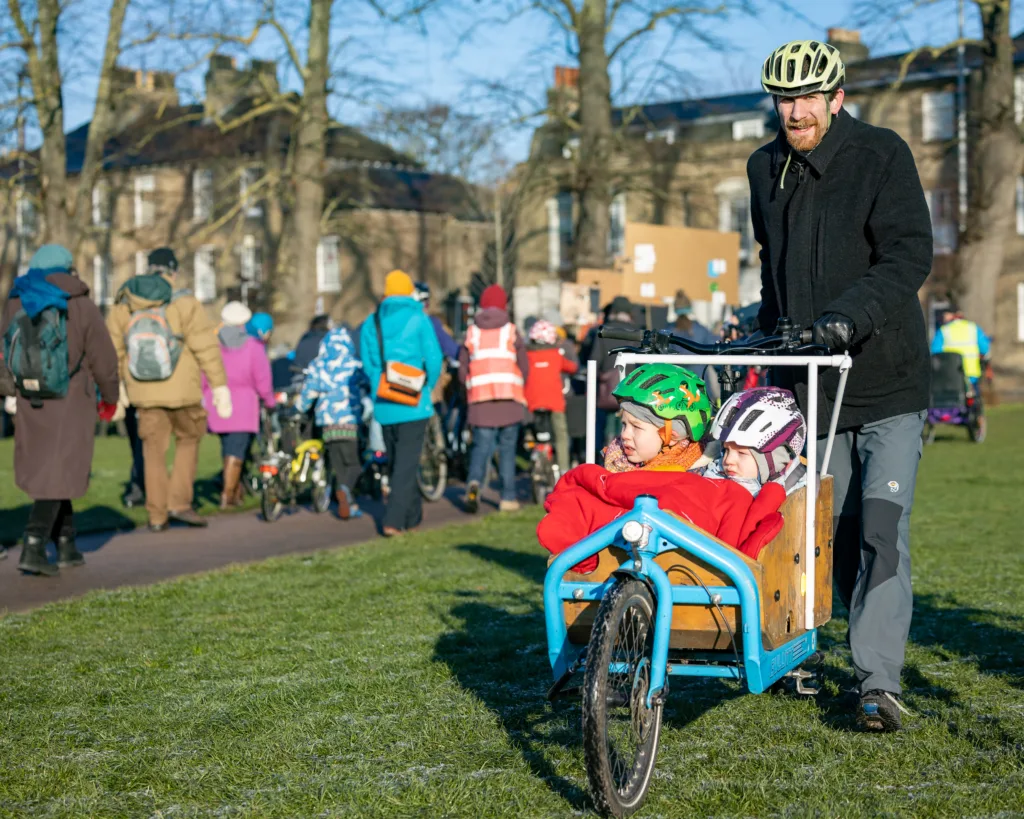
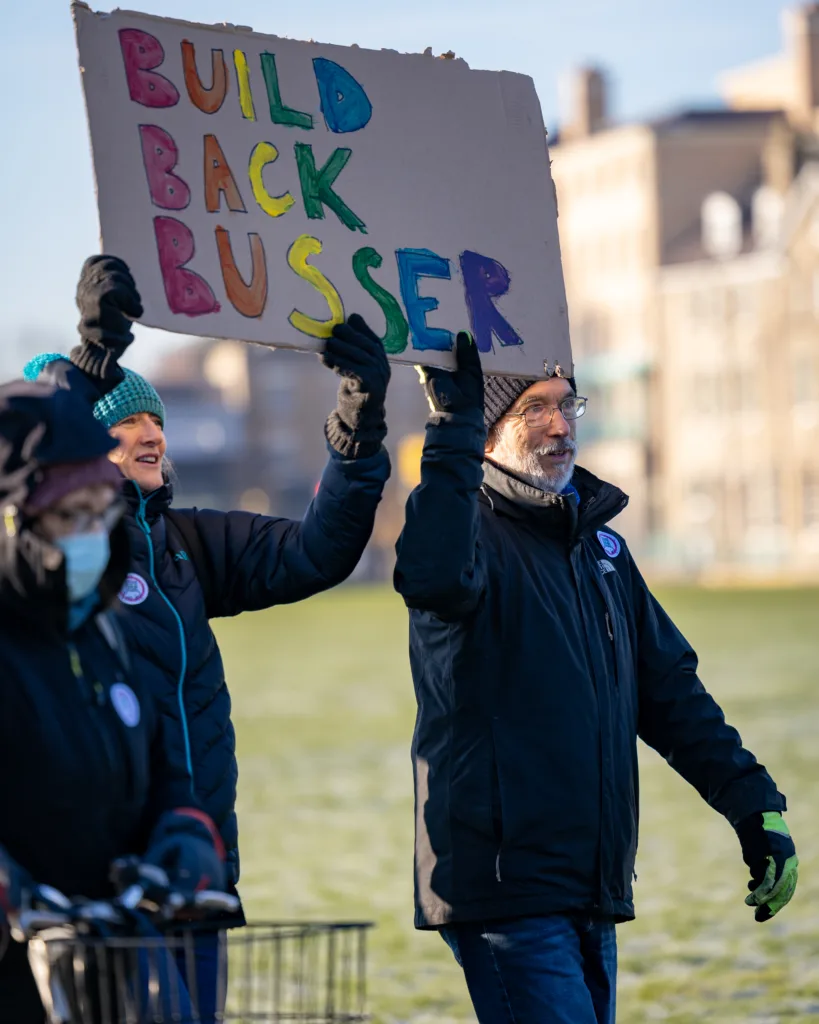
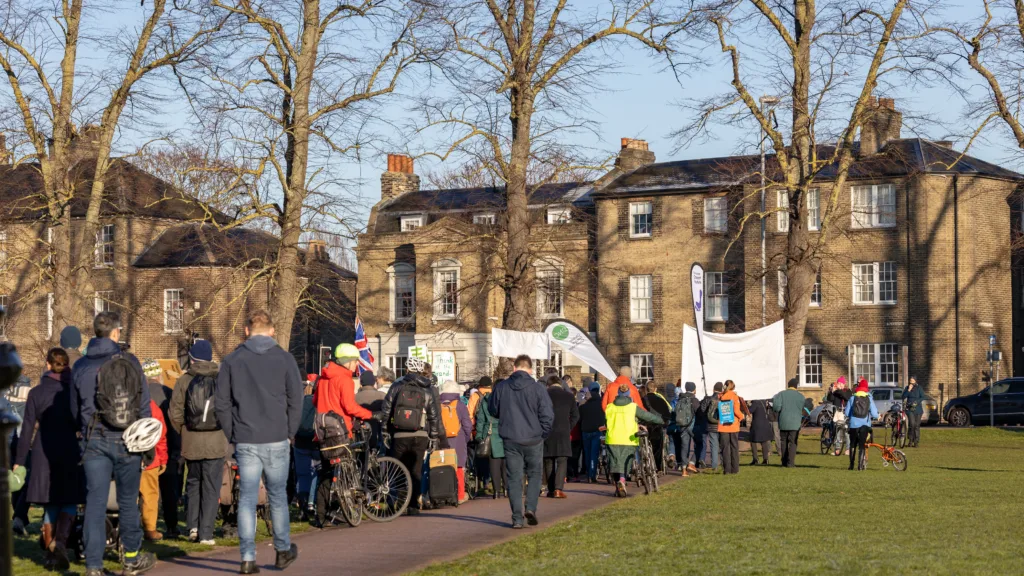
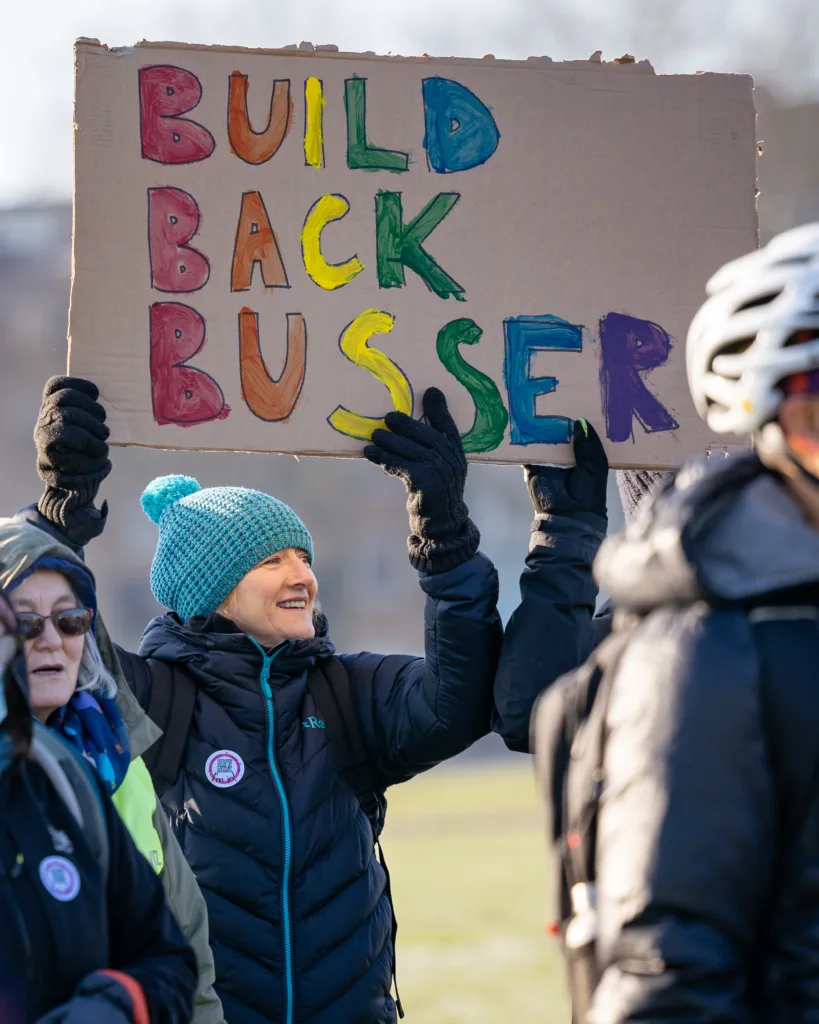
“So, thank you all so much for coming out today. We really encourage everyone to fill in the consultation. We need as many people as possible to say yes to better buses.”
Iris, who is 11 years old and lives in Meldreth, said “I am passionate about the environment, on which all of our futures depend.
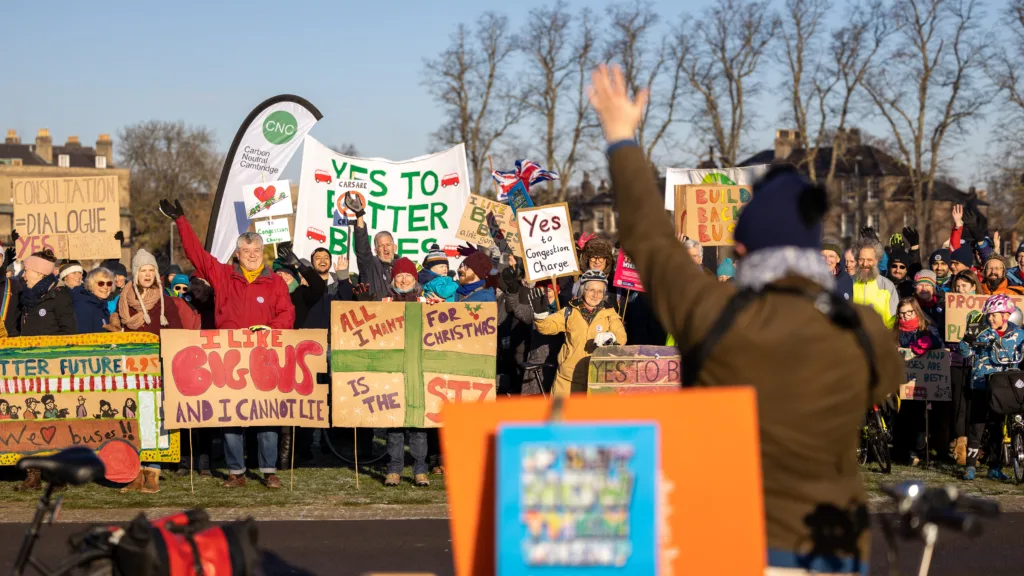
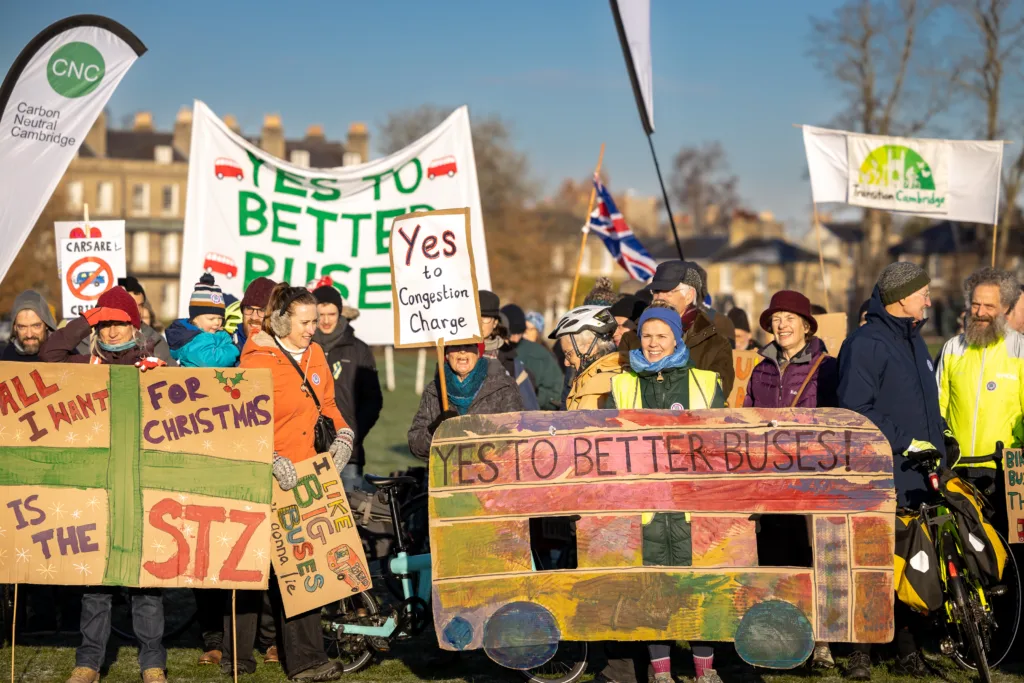
“I have been campaigning on transport issues since I was five years old, because I want to be able to get around without buying a car, and without burning fossil fuels.”
Dr Katherine Sharrocks said after the event “As a doctor, we see the impact of Cambridge’s congestion crisis every day, both in increased cases of respiratory problems and in the number of patients late or unable to make appointments.
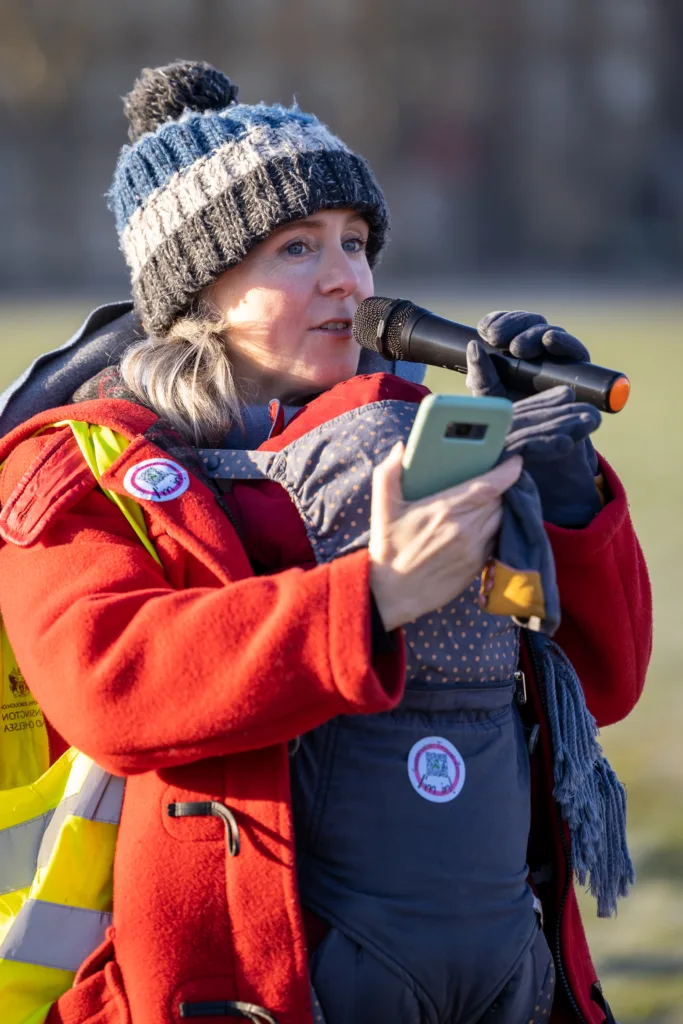
“It is vital we tackle this issue, for our health and that of our children.
“That’s why I was so pleased to speak at the event on Saturday, to thank everyone for speaking up and to encourage as many people as possible to fill in the consultation.”
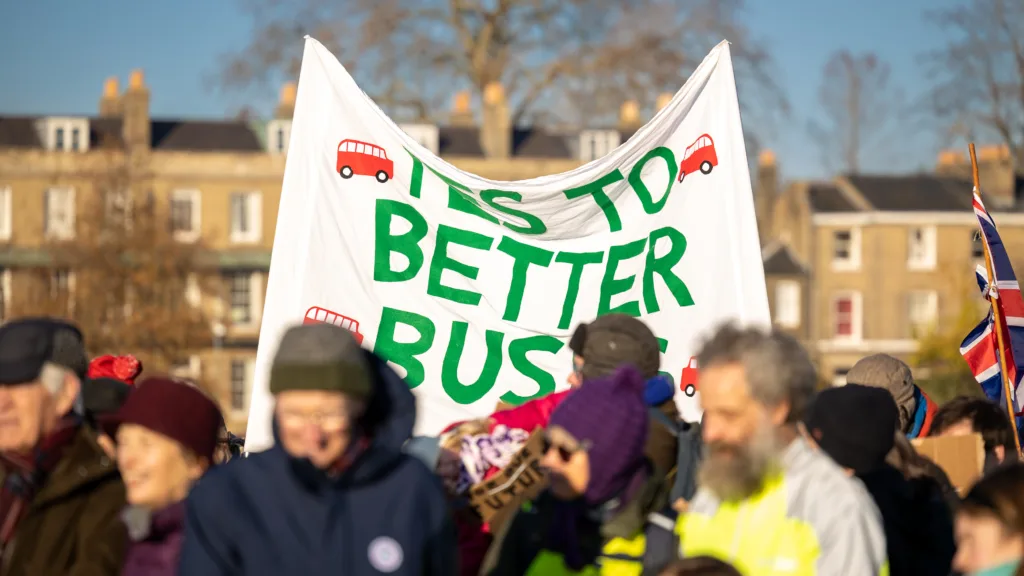
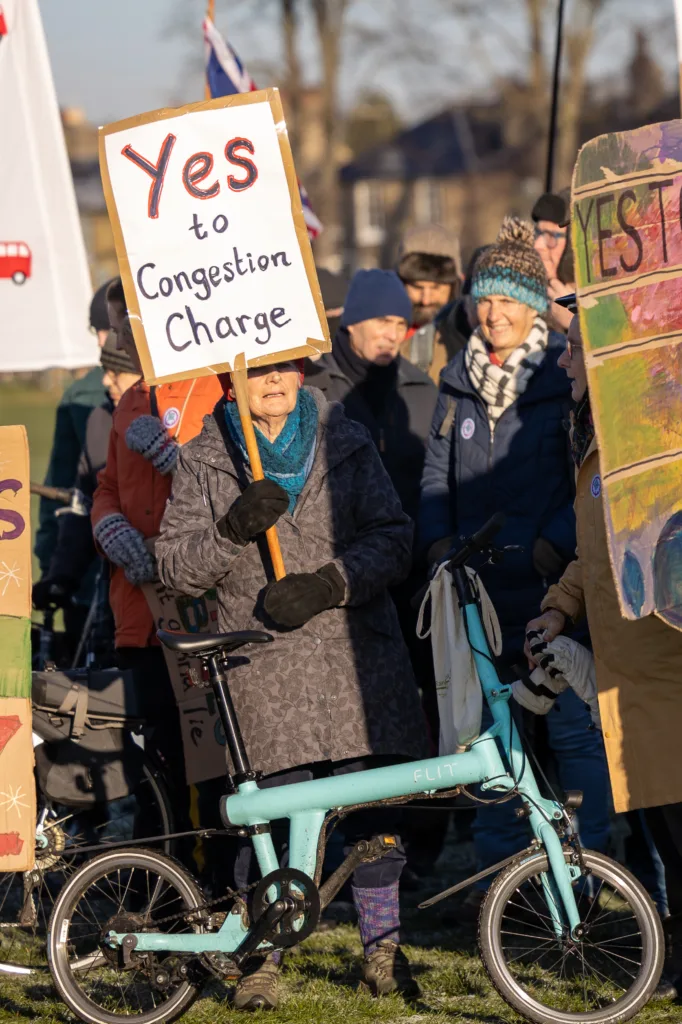 Cambridge Parents for the Sustainable Travel Zone say:
Cambridge Parents for the Sustainable Travel Zone say:
Cambridge is one of the most congested cities in the UK. Even though cars have become more fuel efficient in recent years levels of pollution are still in excess of World Health Organisation air quality guidelines
Traffic levels continued to grow throughout the 2010s as the Greater Cambridge population grew by over 30,000 according to the 2021 census. A faster rate of growth is projected in the 2020s. On average Cambridge drivers spend 71 hours a year in traffic jams.
Current bus services are too infrequent, costly, and unreliable (not least because of congestion) to encourage sufficient numbers to swap private car journeys for public transport.
106 deaths per year can be attributed to poor air quality in Greater Cambridge, not to mention impacts on respiratory conditions such as asthma. Furthermore, shifts to more active modes of travel such as cycling and walking as envisaged by the sustainable travel zone will have positive mental and physical health benefits.
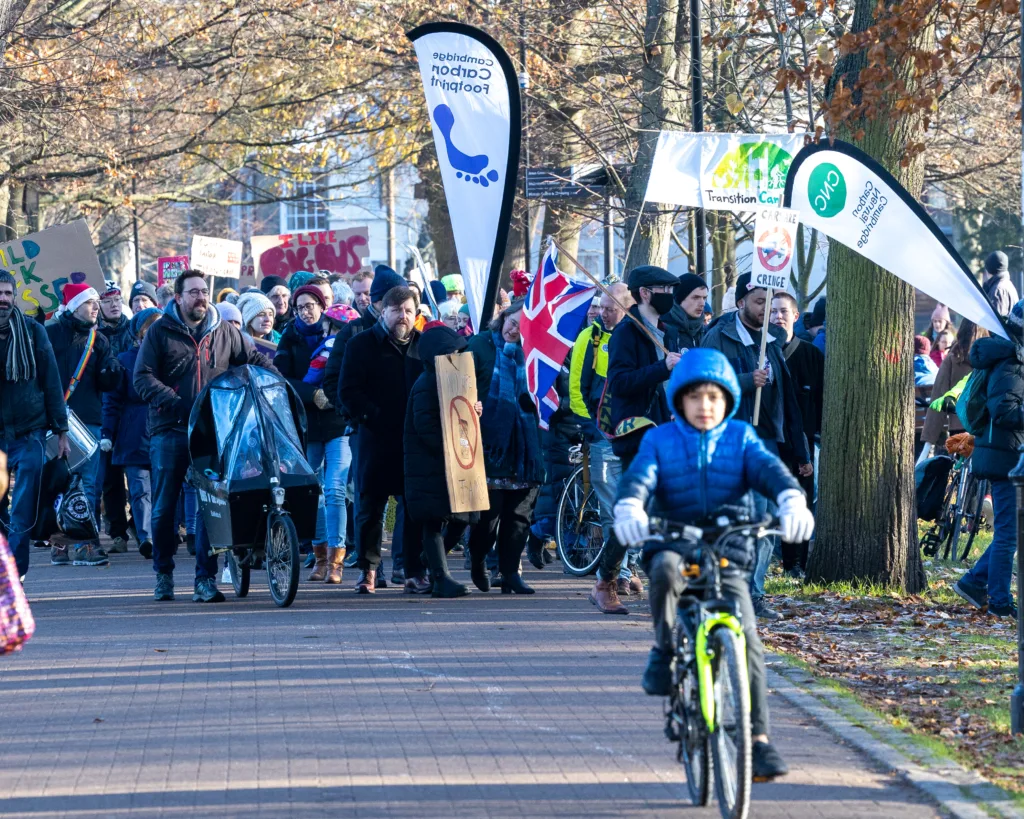

The proposed weekday daytime congestion charge exempts disabled people holding a blue badge, taxis that are compliant with green standards and access for disabled people and gives discounts up to 100% for low-income households.
The sustainable travel zone enables a shift to less polluting, healthier, more economically beneficial modes of travel whilst protecting the vulnerable. It will contribute to a better standard of living for the Greater Cambridge area.


